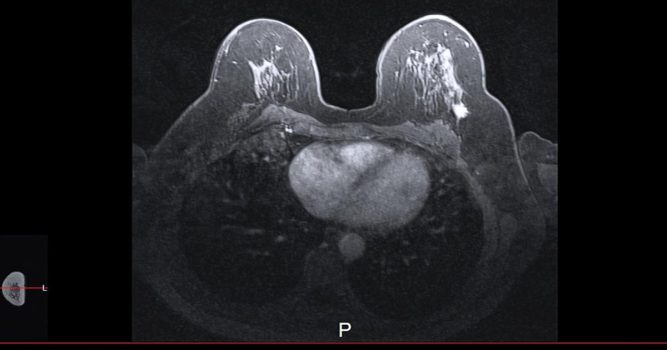[ad_1]
A team led by Dr. Xueping Jing from the University of Groningen in the Netherlands found that a deep-learning model they developed also showed high sensitivity and negative predictive values, as well as a nearly 17% scan time reduction.
“Reduced scanning and interpretation time could result in significantly lower breast MRI screening costs, making it possible to provide MRI screening for a wider population,” Jing and colleagues wrote.
Dynamic contrast-enhanced MRI has advantages as a supplementary screening tool for breast cancer. These include detecting more breast cancer cases than…
[ad_2]
Go to publisher site for the complete article:
Read More



